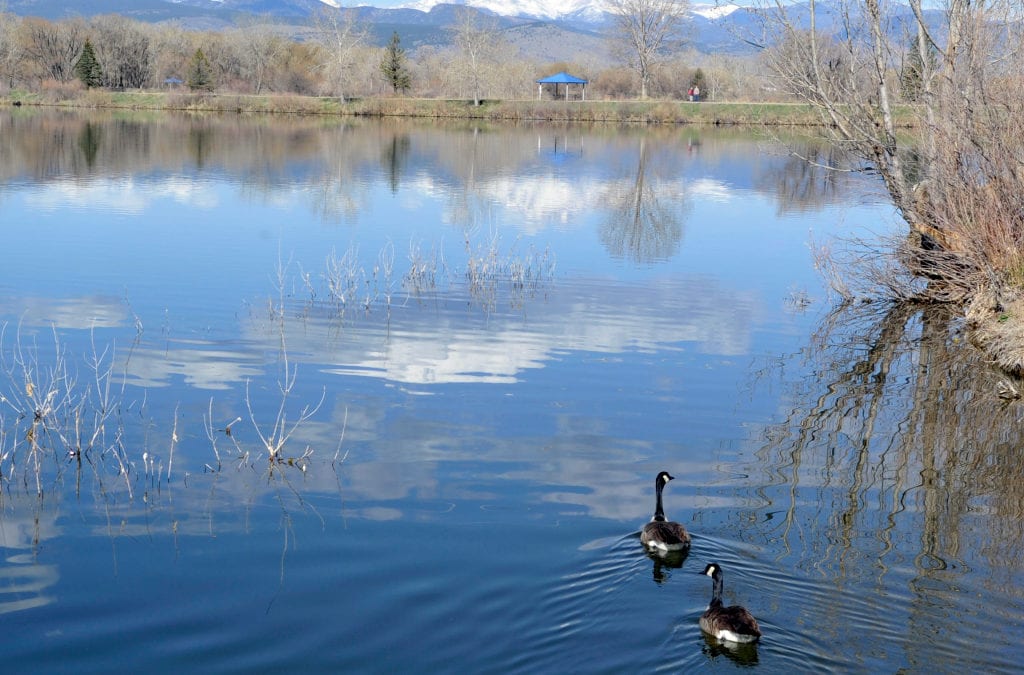Great Outdoors Colorado has awarded Longmont a $219,585 grant to help fund the city’s “emerging land stewardship needs” during the COVID-19 pandemic, the state agency announced Friday.
“With its funding, the city of Longmont will partner with Wildlands Restoration Volunteers (WRV) to deploy volunteer crews for needed maintenance at four locations: the city’s greenway trails, Golden Ponds, McIntosh Lake, and Sandstone Ranch Nature Area,” the Colorado Lottery-funded agency said in its announcement.
“Many of Longmont’s open spaces and trails have seen an uptick in use since the pandemic began, and the city’s ongoing relationship with WRV will help engage the Spanish-speaking community and accomplish the needed work. The city of Longmont will also partner with WRV to expand its volunteer base in the Latinx community by hosting a bilingual training day for those interested in leading a conservation project,” Great Outdoors Colorado (GOCO) said.
Dan Wolford, Longmont’s land program administrator, said Friday that the GOCO grant will fund a variety of maintenance and improvement projects in the city’s parks, nature areas, greenways and trail systems.
Wolford and GOCO officials said that at Longmont’s Golden Ponds Nature Area, 2651 Third Ave., volunteers will plant and cage native trees to improve wildlife habitat and treat them to avoid damage from beavers. They will also remove Russian olive trees along the shoreline, an invasive species that chokes native plants and consumes heavy amounts of water.
At the McIntosh Lake Nature Area, 1905 Harvard St., volunteers will plant native vegetation and restore wildlife habitat along McIntosh Lake’s shoreline and build two rock ramps for non-motorized boats, according to Wolford and GOCO.
The grant money also is expected to fund native seed harvesting at Sandstone Ranch Nature Area, 3001 Colo. 119, for use in future restoration projects. Volunteers will also install barriers along that property’s prairie dog colonies to prevent the animals from spreading to unsuitable habitat.
As for Longmont’s greenway trails, the city’s grant proposal said that “during the pandemic, exponential growth in use of these trails has caused trail edges to deteriorate and trail levels to drop below adjacent concrete levels creating tripping hazards and a challenge for disabled users.”
That problem is occurring along 15 miles of greenway trails, the city said in its funding application, and the volume of trash on the trails and riverbanks has also increased. Wildland Restoration Volunteers will address the trail issues and run several river cleanups each year. GOCO said there will be a specific focus on recruiting Latinx volunteers for those cleanup efforts.
Wolford said the city expects it will take two years in which to spend the state grant money and that Wildland Restoration Volunteers, a Longmont-based nonprofit, will be recruiting volunteers to assist city land management workers in the effort.
Longmont’s grant is part of $6.9 million in funding the GOCO board has approved for 21 projects throughout the state under the agency’s Resilient Communities Program, which the agency said is now funding one-time, immediate needs or opportunities that have emerged in direct response to the COVID-19 pandemic.
“The program helps advance outdoor recreation, stewardship, and land protection projects in a manner that best reflects community needs and priorities at this unique moment in time,” the agency said in its news release.
According to Longmont’s application for the GOCO funding that Wolford provided Friday, the city’s open space programs “provide many benefits for Longmont’s almost 100,000 residents, and that has never been clearer than during the COVID-19 pandemic.
“One beneficial outcome of the pandemic is that Americans have rediscovered the outdoors. As businesses were shuttered, indoor gatherings were restricted, and travel far from home was curtailed, the availability of accessible open space was crucial to the mental, physical and emotional health and well-being of communities in Longmont, and across the world. Use of open space increased dramatically as people looked for safe activities during this health crisis. Given the nature of COVID-19, we are safestoutdoors for now and open space will continue to be important to people as the pandemic wears on,” the city wrote in its funding proposal.
However, the city wrote to GOCO that “as use of Open Space has increased, so have the impacts. Trash is accumulating, social trails created, trampling and erosion increasing along streambanks and shorelines, and wildlife habitats damaged. At the same time, resources to address these issues are shrinking due to the pandemic’s impacts on the Longmont economy and city budget.”
GOCO also announced Friday that it is awarding Colorado Parks and Wildlife, in that department’s partnership with Nederland-based TEENS Inc., $81,163 for hiring TeamWorks crews for trail maintenance projects at Golden Gate Canyon, Eldorado Canyon and Castlewood Canyon state parks. The TeamWorks program pairs mixed groups of urban and rural Colorado youth to work together on paid conservation projects.
GOCO spokesperson Lauren Lecy said in a Friday email that at Eldorado Canyon State Park, “crews will work on Crescent Meadow Trail, a previously under-utilized trail that has seen more than triple the recreation this year compared to last.
“This uptick has damaged the area, including increased spread of invasive species and a growing network of undesignated trails. Three weeks of work will help address these issues and continue forest fuel mitigation efforts,” Lecy said.
Great Outdoors Colorado-funded programs invest a portion of Colorado Lottery proceeds to help preserve and enhance the state’s parks, trails, wildlife, rivers and open spaces. GOCO’s board awards competitive grants to local governments and land trusts and makes investments through Colorado Parks and Wildlife. Created when voters approved a constitutional amendment in 1992, GOCO has since funded more than 5,300 projects in all 64 counties of Colorado without any tax dollar support.
This content was originally published here.

